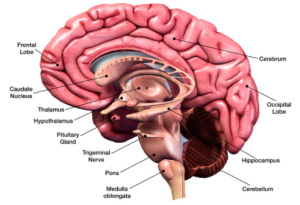Emotion Regulation (Jeon Mi-ae Ph.D. in Psychology/Psychotherapist)

We live in an era where the importance of mental health is emphasized more than ever, because we are living in an environment with a lot of stress and conditions that make us psychologically vulnerable. Sometimes we can reduce stress by changing our physical living environment, but there are many cases where it is hard to solve the difficulties we face in relationships with others. Not only we cannot control the other person, but it is also difficult to control the emotions that we experience. Emotions are (un)conscious experiences that accompany bodily sensations and, for ease of understanding, are usually divided into negative and positive emotions. These emotions should not be judged as being either good or bad because they are signals of threats or rewards and can be said to be a compass that guides us to an appropriate response in the situation. On the other hand, we consider the emotions we experience to be fact-based, but we are more influenced by our thoughts and interpretations of events or situations. In other words, depending on how we think about an event or situation, each person can experience completely different emotions, and when excessive negative emotions are triggered, our thoughts are prone to distortion.
Emotion regulation has been actively studied in various academic fields, especially in the field of neuroscience, which, from that perspective, the expression “the lid was opened” is an appropriate expression for a situation in which emotion regulation has failed. The outer surface of the brain is covered with a grayish-white cortex (cerebral cortex), and this area of the brain is known to control thinking functions. The lower limbic system is the area that controls emotions and is called the old mammalian brain. The brainstem, which is located at the innermost part of the brain, is the area of the brain that is responsible for basic life support functions (respiration, heart rate, temperature control, etc.). When these three areas of the brain develop in a balanced way and work organically with each other, the brain can be said to be a state of good emotional regulation. However, when emotions are intense for any reason, the function of the limbic system, which is the emotional brain, is over-activated, weakening or paralyzing the thinking function of the cerebral cortex (cap part), which has a higher function, and it can become like an active volcano burning red. At this time, it can be said that the so-called lid was opened.
How then can we be less swayed by emotions or situations, better control our emotions, and stay rational and calm? In other words, can our brain in the three areas maintain balance and cope wisely without losing our composure? First, the most important and often overlooked thing is to reduce emotional vulnerability. Healthy eating habits, sufficient sleep, regular exercise, appropriate interpersonal contact, and self-care for improving quality of life must be considered. The second is to improve our ability to recognize our emotions and accept them as they are. The emotions we experience are not to be judged as right or wrong, but the object of awareness and acceptance. When we meet someone who listens to us and sympathizes with us when we are upset, there will be times when our emotions will subside, and we will have the courage to solve the problem again. In this way, if we can support ourselves by understanding and empathizing with our emotions without judging them, we will lessen the times we suppress our emotions and explode, and we will also be less lonely because people will understand us. In fact, we will be able to navigate through our lives and have the type of life we want with our minds and brains at peace.
Jeon Mi-ae
Ph.D. in Psychology/Psychotherapist
Download PDF version of the articleWelcome to FUTFS, a Toronto Korean Community. FUTFS is a Korean-Canadian community that has been operating in Toronto for over 20 years, providing counseling and outreach services, and providing various educational programs and services for seniors, adults, and youth. In addition to free training, there are also many events. We appreciate your participation.
Please check our free programs and services at www.futfs.org